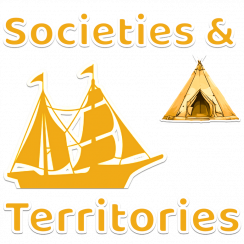Youth
In the 1980s, the Mi’kmaq population was very young because half of the Mi’kmaq population was under 25 years old. A growing number of young Mi’kmaq attended formal schools like other students in Quebec, but many did not complete high school.
Mi’kmaq youth had difficulty finding work because they had little formal education and jobs were scarce in their villages. Like the Inuit and other Indigenous Peoples, Mi’kmaq growing up in the 1980s faced many issues related to colonization, including poverty. Since the 1980s, the Mi’kmaq have developed services to support people of all ages in overcoming social issues that arose due to European contact and colonization.
Seniors
In the 1980s, approximately 5% of Mi’kmaq were 65 and older. Some of these seniors were considered elders. While elders tend to be older, not every senior is considered an elder. An “elder” is someone who has earned a high level of respect in their community. Elders may teach hunting and fishing techniques, culture and language. They are respected for their knowledge and continue to play an important role in Mi’kmaq communities.
Grandparents and parents who attended formal schools in the 1870s to 1990s may remember that at school it was forbidden to speak Mi’kmaq in the classroom and in the yard. Formal schools were often disconnected from traditional life and it was more important to earn a living, so few attended school at this time. Many Mi’kmaq earned money through jobs like chopping wood or working in the potato fields.
Author: Service national du Récit de l’univers social


